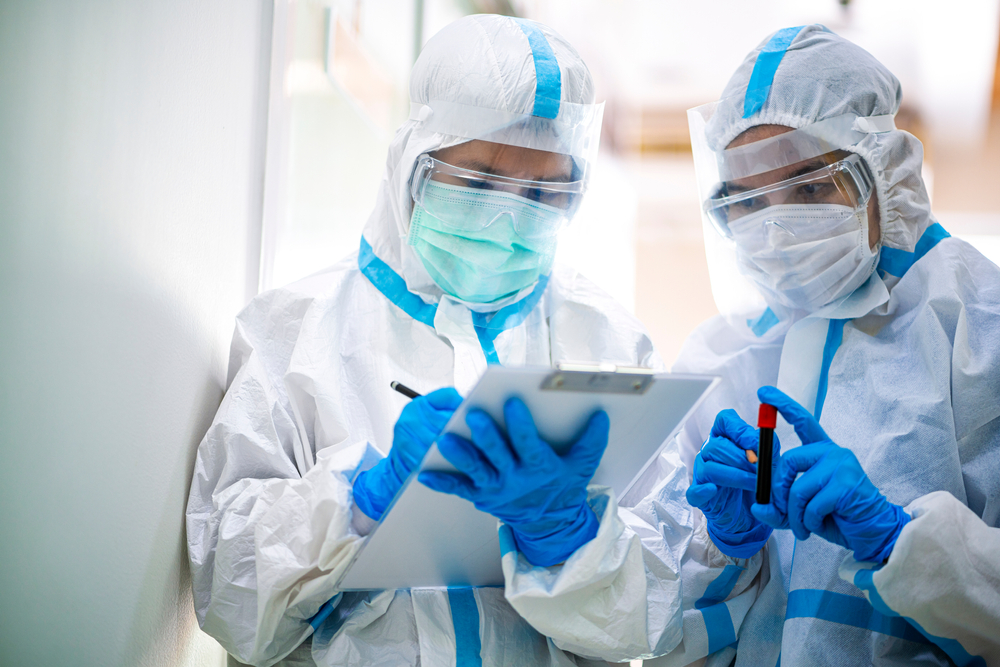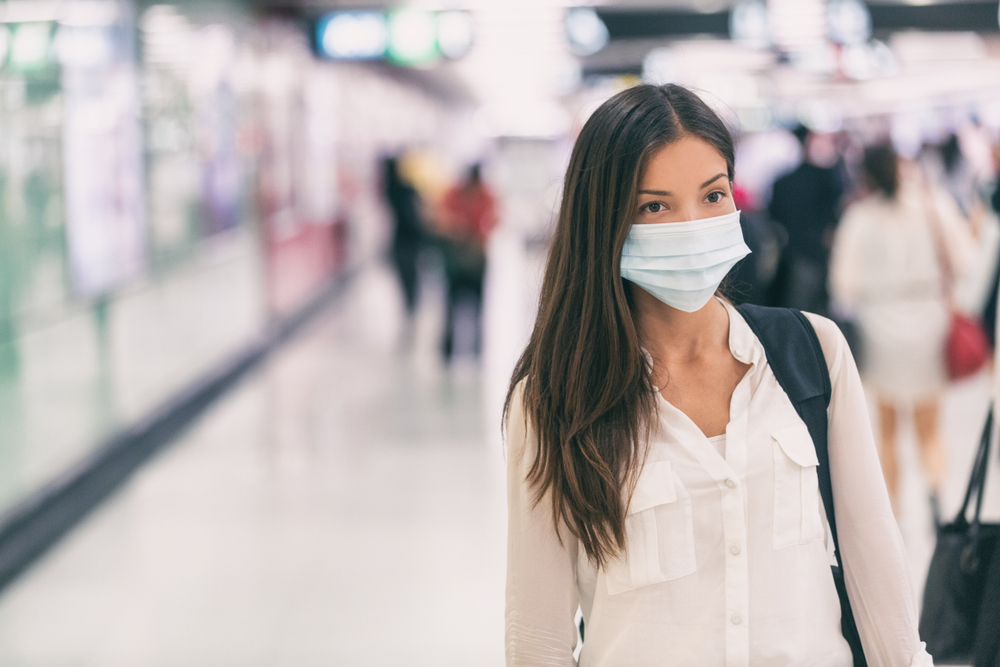Published Jan. 31, 2022 in usatoday.com
By Sudiksha Kochi
The claim: COVID-19 pneumonia is an allergic reaction
With the rise in COVID-19 cases due to the omicron variant, social media users are sharing alternative explanations for the virus’ effects on the body.
“C o V I D pneumonia is actually mast cell degranulation of the lungs!!,” reads the text of a Facebook post shared Jan. 14. “Put simply, it’s an allergic reaction occurring after the viral phase ends, most likely to something in the viral particles left over after the body deals with the virus.”
The Facebook post cites as evidence a purported observational trial in which a South African doctor named Shankara Shetty treated a patient with high doses of steroids and antihistamines and the patient’s health improved.
The post generated close to 500 shares in less than a week. Variations of this claim have received hundreds of likes on Facebook.
But the claim is wrong, as independent fact-checking organizations have reported.
Experts told USA TODAY that COVID-19 pneumonia is the result of lung inflammation, not an allergic reaction. Mast cell degranulation, a process in which immune cells respond to foreign material in the respiratory tract, is not an allergic reaction. And there’s no evidence that antihistamines are effective for treating COVID-19 pneumonia.
USA TODAY reached out to Shetty and the social media user who shared the claim for comment.
COVID-19 infection causes pneumonia
Pneumonia caused by COVID-19 is not an allergic reaction, Dr. Kyle Enfield, a pulmonary and critical care physician at the University of Virginia, told USA TODAY.
When a person becomes infected, the coronavirus uses cells in the body to replicate. That leads to cellular damage and inflammation in the lungs called pneumonia, Enfield said.
Symptoms of pneumonia include shortness of breath, coughing and chest pain, according to the Mayo Clinic. An allergic reaction, on the other hand, occurs when the body’s immune system produces antibodies to react to substances such as pollen or pet dander.
Allergic reactions can present some symptoms similar to pneumonia, such as wheezing and shortness of breath. But that doesn’t mean they’re the same – allergies are not the result of an infection, Enfield said.
Fact check:False claim that Microsoft is developing a microchip for vaccine information
“Allergies and infectious diseases could present with some similar features but are different clinically,” he said.
The Facebook post’s claim that “viral particles” are left in the body after a coronavirus infection is also misleading.
People who recover from COVID-19 “can continue to have detectable SARS-CoV-2 RNA” in their body for up to three months after they first got sick, according to the Centers for Disease Control and Prevention.
But these viral particles aren’t viable, according to Dr. Lauren Eggert, clinical assistant professor in the Division of Pulmonary, Allergy and Critical Care Medicine at Stanford University. And they have nothing to do with allergic reactions.
Mast cells have little involvement in COVID-19 pneumonia
The Facebook post’s claim that COVID-19 pneumonia is a mast cell degranulation of the lungs is also wrong, according to Dr. Patricia Lugar, an allergy and immunologist specialist at Duke University.
When foreign particles enter the respiratory tract, mast cells, a type of immune cell, may get activated and release inflammatory mediators in the body. That process is called degranulation, said Dr. Lauren Cohn, co-director of the Yale Center for Asthma and Airway Diseases.
Mediators, or chemical receptors, create physiological changes in the body as an immune response. Histamines, for example, are mediators that mast cells release for allergic reactions, Cohn said. That’s why people take antihistamines like Benadryl to control their allergies.
That process is different from the immune response to COVID-19 pneumonia.
Fact check: False claim that 4 athletes dropped out of Australian Open due to chest pain
Multiple types of immune cells release inflammatory mediators in the lungs, Lugar said. Mast cells may also release inflammatory mediators against COVID-19 pneumonia, but this has a minor impact because lung damage is caused by the extreme activation of various potent chemical mediators from these immune cells, Cohn said.
Dr. Jack O’Horo, an infectious disease specialist at the Mayo Clinic, said in an email that no large or well-conducted studies have demonstrated a benefit of using antihistamines to treat COVID-19 pneumonia. Cohn agreed, saying high-dose steroids are typically given to patients to reduce the severity of the condition.
“Not a perfect treatment … but (it) does help to limit the disease,” Cohn said.
Our rating: False
Based on our research, we rate FALSE the claim that COVID-19 pneumonia is an allergic reaction. Experts say that while some of the symptoms of COVID-19 pneumonia and an allergic reaction are similar, they are clinically distinct conditions. There is no evidence antihistamines are effective in treating COVID-19.
Our fact-check sources:
- Dr. Kyle Enfield, Jan. 25, Phone interview with USA TODAY
- Dr. Nicola Hanania, Jan. 25, Email exchange with USA TODAY
- Dr. Patricia Lugar, Jan. 26, Phone interview with USA TODAY
- Dr. Jack O’Horo, Jan. 25, Email exchange with USA TODAY
- Dr. Lauren Eggert, Jan. 26, Phone interview with USA TODAY
- Dr. Lauren Cohn, Jan. 26, Phone interview with USA TODAY
- Mayo Clinic, June 13, 2020, Pneumonia
- American Academy of Allergy Asthma & Immunology, Sept. 28, 2020, Allergic Reactions
- Centers for Disease Control and Prevention, Feb. 22, 2021, Symptoms of COVID-19
- AFP Fact Check, Jan. 20, Posts falsely claim pneumonia caused by Covid-19 is allergic reaction
- Johns Hopkins Medicine, accessed Jan. 27, COVID-19 Lung Damage
- American Academy of Allergy Asthma & Immunology, accessed Jan. 28, Mast Cell Activation Syndrome (MCAS)
- Centers for Disease Control and Prevention, Jan. 14, Ending Isolation and Precautions for People with COVID-19: Interim Guidance
- Bloomberg News, Dec. 26, 2021, Coronavirus Can Persist for Months After Traversing Body
- USA TODAY, Jan. 27, Is long COVID a syndrome or a series of coronavirus complications? What we know now about lingering symptoms.
- Mayo Clinic, Aug. 4, 2020, Allergies
- USA TODAY, Jan. 16, Omicron not peaking nationally yet, surgeon general says; Djokovic leaves Australia after losing appeal: COVID-19 updates




